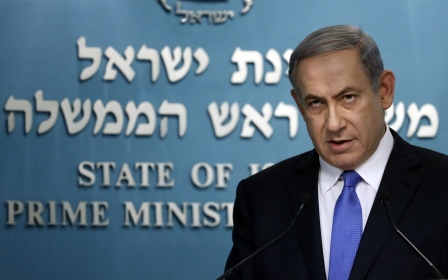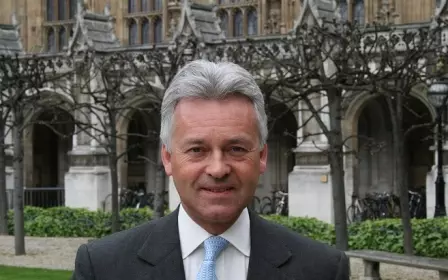Netanyahu approves new East Jerusalem settlement units

Israeli Prime Minister Benjamin Netanyahu has given approval for the sale of hundreds of homes still to be built in an East Jerusalem settlement, an official said on Tuesday.
“The prime minister approved the units," he told AFP, confirming media reports that Netanyahu had authorised putting 436 units in Ramat Shlomo and another 18 in Ramot on the market on Monday.
In 2010, Israel announced plans to build 1,600 settler homes in Ramat Shlomo, an ultra-Orthodox Jewish settlement in East Jerusalem. The announcement came as US Vice President Joe Biden was visiting Israel, provoking American opposition and souring relations with Washington.
The plans were frozen to lower tensions, but in May this year 900 units were re-approved after a new intersection providing access to the settlement was opened.
Israeli NGO Ir Amim, which opposes settlement construction, noted that following Monday's decision "no new tender has been published" but warned that while Netanyahu's "announcement has only declaratory significance, procedural steps to advance the plan could be taken at any time".
The official did not say why Netanyahu had made this announcement while no tenders for construction had even been published.
Israel seized East Jerusalem in the 1967 Six-Day War and later annexed the Palestinian territory, in a move never recognised by the international community.
Today, some 200,000 Israelis live in 15 illegal settlements in East Jerusalem alongside a Palestinian population of 310,000.
The Palestinians see the eastern sector of the city as the capital of their promised state, and vigorously oppose any attempt to extend Israeli control.
The Israeli official, speaking on condition of anonymity, stressed that "in any conceivable peace agreement, these areas remain part of Israel and in no way hinder moving forward in peace”.
The Israeli move comes just days after the EU Commission "interpretative notice" ruling released a set of guidelines for labelling products from Israeli settlements in East Jerusalem, the West Bank and the Golan Heights. The products will now have to read "made in an Israeli settlement" or similar in order to be sold in the EU. Products from the West Bank, meanwhile, which do not come from settlements, will have to be labelled as "product from Palestine" or something similar.
The settlements are deemed illegal under international law and are considered a major stumbling block to peace efforts since those in the West Bank and East Jerusalem are built on land Palestinians see as part of a future state.
Netanyahu has compared the European Union's decision to label goods from Israeli settlements to the Nazi boycott of Jewish businesses.
Lars Faaborg-Andersen, the EU ambassador to Israel, responded by reminding the Israeli government that none of the 28 member nations of the EU recognise as Israeli territory the Palestinian lands occupied by Israeli since 1967, including East Jerusalem.
"This is something that also happens to be the view of 99 percent of the international community," Faaborg-Anderson said, as reported by the National Catholic Reporter.
The international community opposes settlement construction in the occupied Palestinian territories, saying their continued growth undermines the very idea of establishing an independent and viable Palestine alongside Israel. Today, some 550,000 Israeli settlers live in the West Bank and East Jerusalem, almost 10 percent of Israel's Jewish population.
New MEE newsletter: Jerusalem Dispatch
Sign up to get the latest insights and analysis on Israel-Palestine, alongside Turkey Unpacked and other MEE newsletters
Middle East Eye delivers independent and unrivalled coverage and analysis of the Middle East, North Africa and beyond. To learn more about republishing this content and the associated fees, please fill out this form. More about MEE can be found here.




